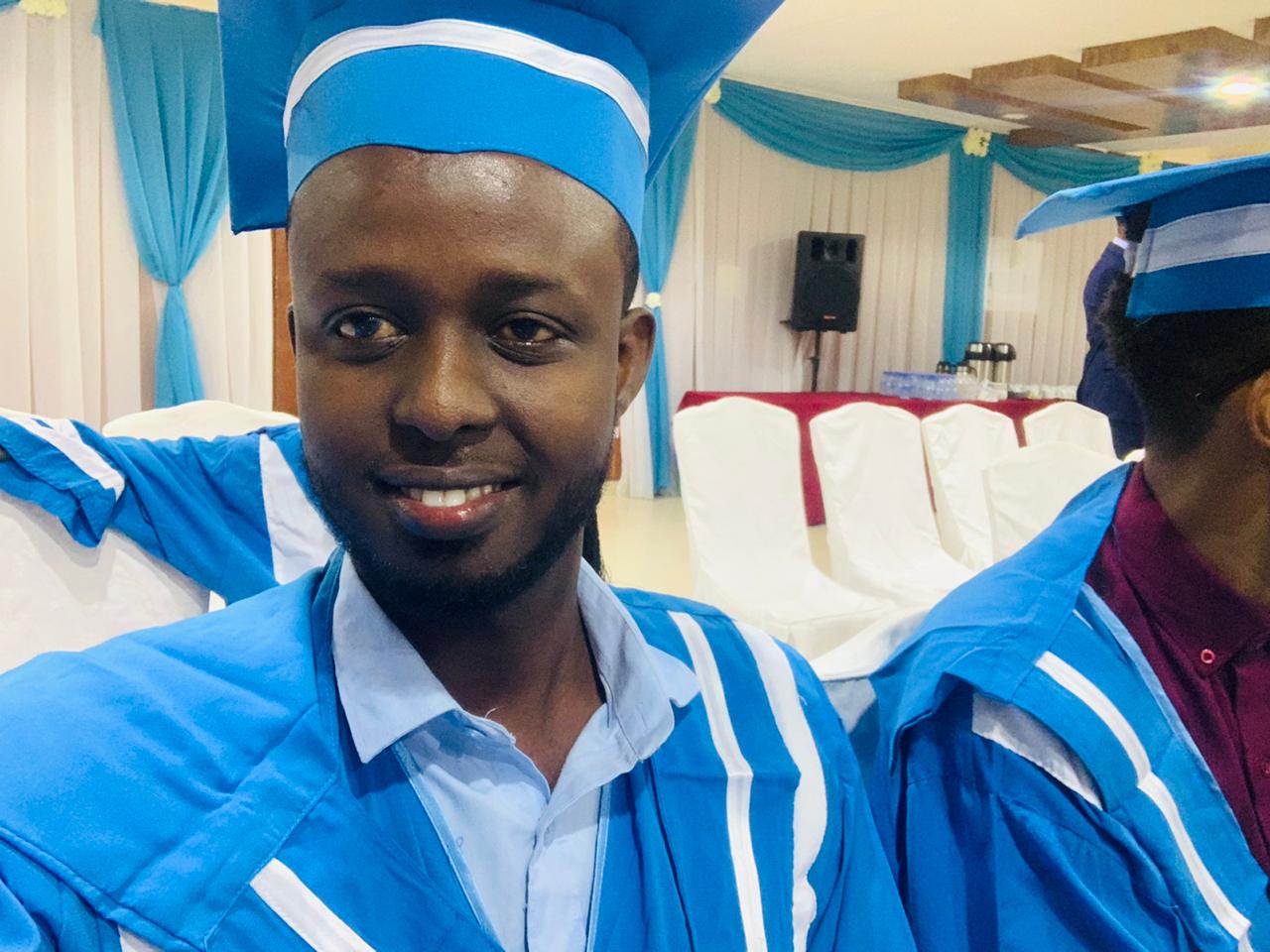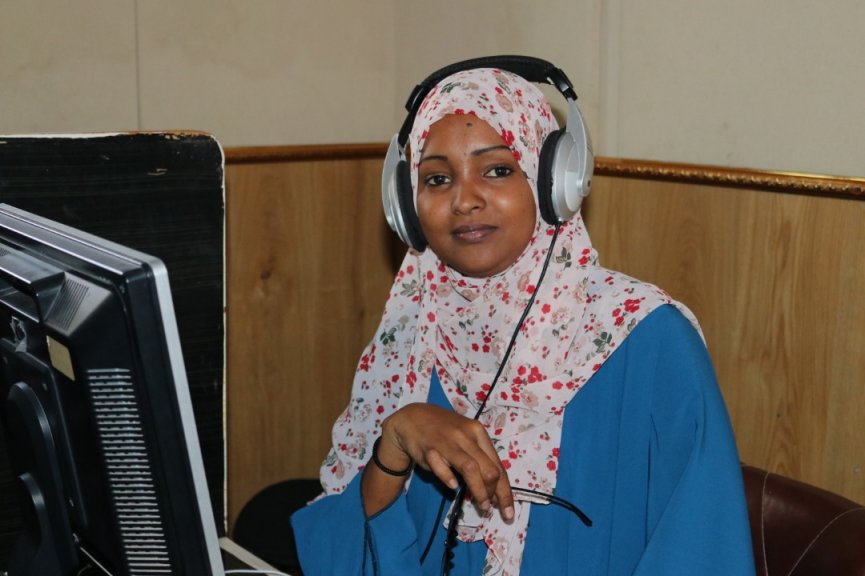
Somali journalists accredit university course for their successful achievement

MOGADISHU (HORN OBSERVER) - Abdishakur Mohamud, a 28-year-old journalist living in Mogadishu, has now been promoted as the director of Nation FM Radio, leading a team of 20 reporters and editors, thanks to a journalism diploma he obtained from Somali National University (SNU) School of Journalism.

He is among 25 journalists who graduated last year from the college, which was re-opened in 2017, with the collaboration of International Media Support (IMS) and FOJO, a media institute based in Sweden through the funding from the Swedish Embassy in Somalia.
"The success that I achieved is because of the successful free course I took at the university. It improved my career of journalism,” said Abdishakur.
The majority of graduates were recommended by local media houses and journalists' associations. The Somali Journalists Syndicate (SJS) has referred seven journalists to the university in 2019 and another six this year.
"Somali media professionals and their unions have praised the significant contributions of the Faculty of Journalism at SNU amidst growing need for building the professional capacity of the journalists in Somalia. SJS is one of the beneficiaries of the journalism college as the majority of graduates are our members,” said Abdalle Ahmed Mumin, secretary general of SJS.
"Following years of armed conflict and closure of schools, generations of local journalists missed their formal education. Enhancing the capacity of the working journalists by educating them is part of improving the quality of the Somali media. We are pleased that the number of journalists enrolled in this course has increased significantly. This would not have been possible without the support of IMS-FOJO,” added Mr. Mumin.
Somalia remains one of the most dangerous places to be a journalist and a country where media professionals are constantly targeted for their work. Journalists do not receive adequate trainings courses and had resulted poor quality reporting and safety risks.
"My previous qualifications were in other subjects. But the journalism course at SNU has become important to my day-to-day work as a journalist. It was like revamping my journalism skills - both in writing and orally. I am now leading my team with confidence," added Abdishakur.
- THE ONLY HEAD OF DEPARTMENT -
Globally, journalism is changing, as is the role of women in the workplace, but in Somalia the two are not always evolving in harmony. According to a recent report by the Somali Journalists Syndicate, female journalists in Somalia face specific challenges. They are the lowest paid employees in the media even though they have years of experience. Training opportunities are few and they face some kind of discrimination from the public.

Sadia Nour Eid, a 28-year-old female radio producer knew the challenges she faces in a male-dominated job when she joined the profession a few years ago. She didn't want to miss the opportunity and enrolled straight into the journalism course. Now a graduate with a journalism degree from Somali National University, she is the sole head of department at her radio station ‘Himilo’ in Mogadishu.
"Just five months after finishing the course, I was promoted to the station's head of the program department. I lead a team of producers working on the toughest shows in my radio station. I am extremely grateful to Somali National University for creating this opportunity for us and the organizations that have facilitated this course and the teachers for their time,” she said.
Now, the university is looking forward to having its first national journalism curriculum and expanding its ability to deliver high-quality and professional journalists who will make a significant difference in the local media and contribute to the country’s peace and democracy.
Leave a comment
- Popular
- Rated
- Commented
04/11/2021 - 11:05:02
12/03/2023 - 22:58:08
22/01/2023 - 11:24:06
13/12/2015 - 09:27:08
01/03/2021 - 09:00:37
Opinions
17/05/2024 - 23:10:22
14/05/2024 - 21:03:09
30/04/2024 - 01:33:18
Politics
06/05/2024 - 02:52:53
02/05/2024 - 23:52:49
30/04/2024 - 01:33:18
Terror Watch
12/05/2024 - 00:19:20
07/05/2024 - 15:08:55
Press Releases
18/05/2024 - 10:24:36
 0
0 


































Somali journalists accredit university course for their successful achievement
MOGADISHU (HORN OBSERVER) - Abdishakur Mohamud, a 28-year-old journalist living in Mogadishu, has now been promoted as the director of Nation FM Radio, leading a team of 20 reporters and editors, thanks to a journalism diploma he obtained from Somali